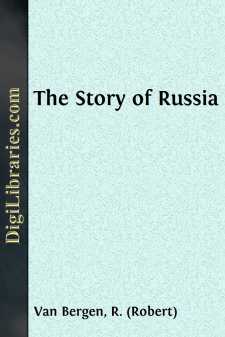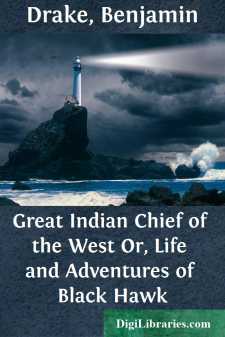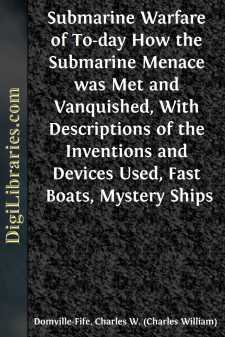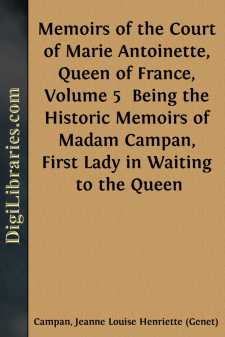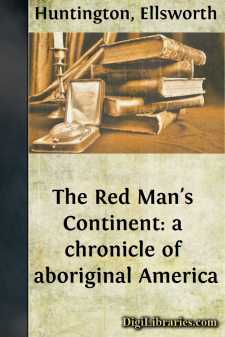History
- Africa 30
- Americas (North Central South West Indies) 50
- Ancient 68
- Asia 58
- Australia & New Zealand 8
- Canada 41
- Caribbean & West Indies 1
- Civilization 20
- Eastern Europe 12
- Europe 310
- Expeditions & Discoveries 60
- General 77
- Historical Geography 1
- Jewish 9
- Latin America 3
- Medieval 8
- Middle East 13
- Military 248
- Revolutionary 8
- Study & Teaching 5
- United States 353
- Western Europe 56
- World 13
History Books
Sort by:
by:
Andrew Lang
INTRODUCTIONItis not without diffidence that the editor offersThe True Story Bookto children. We have now given them three fairy books, and their very kind and flattering letters to the editor prove, not only that they like the three fairy books, but that they clamour for more. What disappointment, then, to receive a volume full of adventures which actually happened to real people! There is not a...
more...
I—THE REALM OF THE CZAR. When we think of our country, we feel proud of it for other and better reasons than its great size. We know how its extent compares with that of other nations; we know that the United States covers an area almost equal to that of Europe, and, more favored than that Grand Division, is situated on the two great highways of commerce, the Atlantic and Pacific Oceans. Europe is as...
more...
GOVERNMENT OWNERSHIP OF RAILROADS Paternalistic control, even when entirely benevolent in intent, is generally harmful in effect. It is apt to be doubly so when, as sometimes occurs, it is punitive in intent. The history of our railroads in the last ten years is a case in point. In their early youth our railroads were allowed to grow up like spoiled, wilful, untamed children. They were given pretty...
more...
I INTRODUCTION The history of education, like all other branches of history, is based upon documents. Historical documents are, in general, "the traces which have been left by the thoughts and actions of men of former times"; the term commonly refers to the original records or sources from which our knowledge of historical facts is derived. The documents most generally used by historians are...
more...
CHAPTER I. One of the greatest achievements of modern research is the discovery of a key by which we may determine the kinship of nations. What we used to conjecture, we now know. An identity in the structural form of language establishes with scientific certitude that however diverse their character and civilizations, Russian, German, Englishman, Frenchman, Spaniard, are all but branches from the same...
more...
CHAPTER I "A LAND OF OLD RENOWN" If we were asked to name the most interesting country in the world, I suppose that most people would say Palestine—not because there is anything so very wonderful in the land itself, but because of all the great things that have happened there, and above all because of its having been the home of our Lord. But after Palestine, I think that Egypt would come...
more...
by:
Benjamin Drake
CHAPTER I. Origin of the Sac and Fox Indians—Removal to Green Bay—Their subjugation of the Illini confederacy—Their attack upon St. Louis in 1779—Col. George Rogers Clark relieves the town—Governor Harrison's letter—Maj. Forsyth's account of the conquest of the Illini—Death of the Sac chief Pontiac—Sac and Fox village on Rock river—Description of the surrounding...
more...
INTRODUCTIONWhileGreat Britain remains an island, with dominion over palm and pine, it is to the sea that her four hundred millions of people must look for the key to all that has been achieved in the past and all that the future promises in the quickening dawn of a new era.Not only over Great Britain alone, however, does the ocean cast its spell, for it is the free highway of the world, sailed by the...
more...
CHAPTER I. The ever-memorable oath of the States General, taken at the Tennis Court of Versailles, was followed by the royal sitting of the 23d of June. In this seance the King declared that the Orders must vote separately, and threatened, if further obstacles were met with, to himself act for the good of the people. The Queen looked on M. Necker's not accompanying the King as treachery or...
more...
CHAPTER I. THE APPROACHES TO AMERICA Across the twilight lawn at Hampton Institute straggles a group of sturdy young men with copper-hued complexions. Their day has been devoted to farming, carpentry, blacksmithing, or some other trade. Their evening will be given to study. Those silent dignified Indians with straight black hair and broad, strong features are training their hands and minds in the hope...
more...



